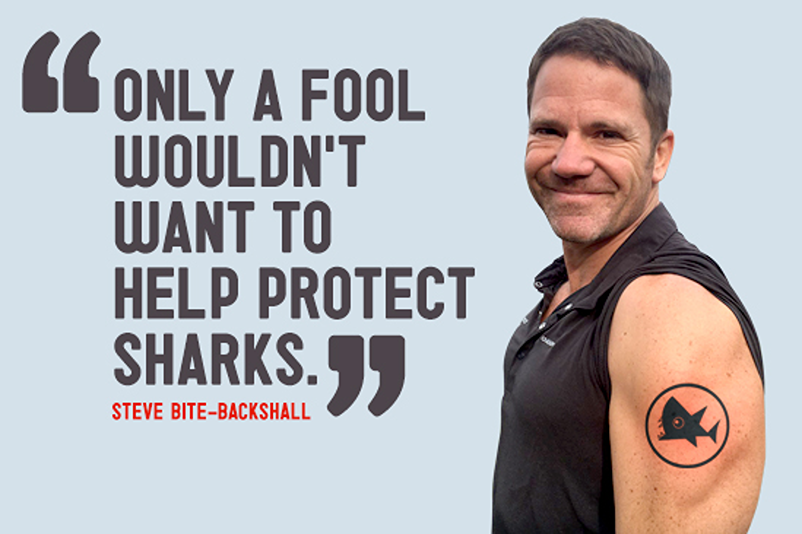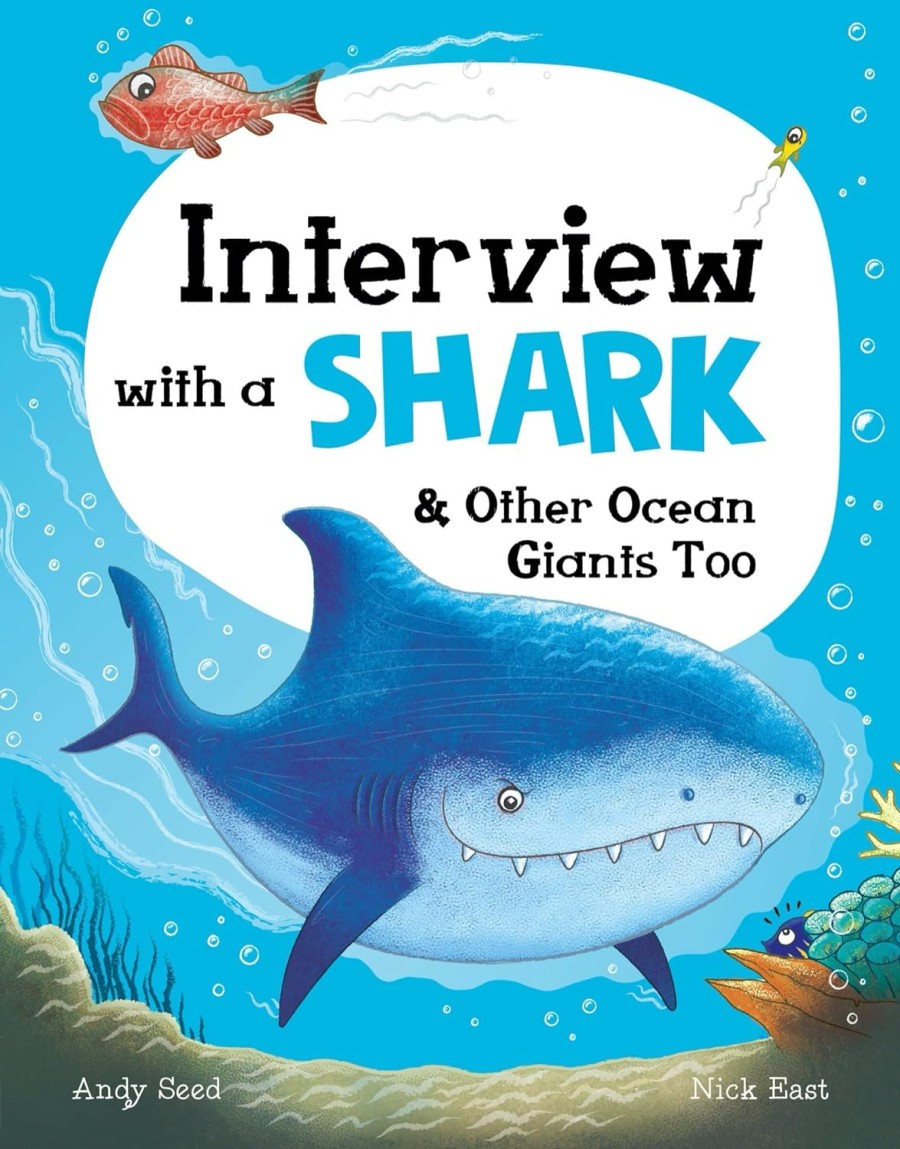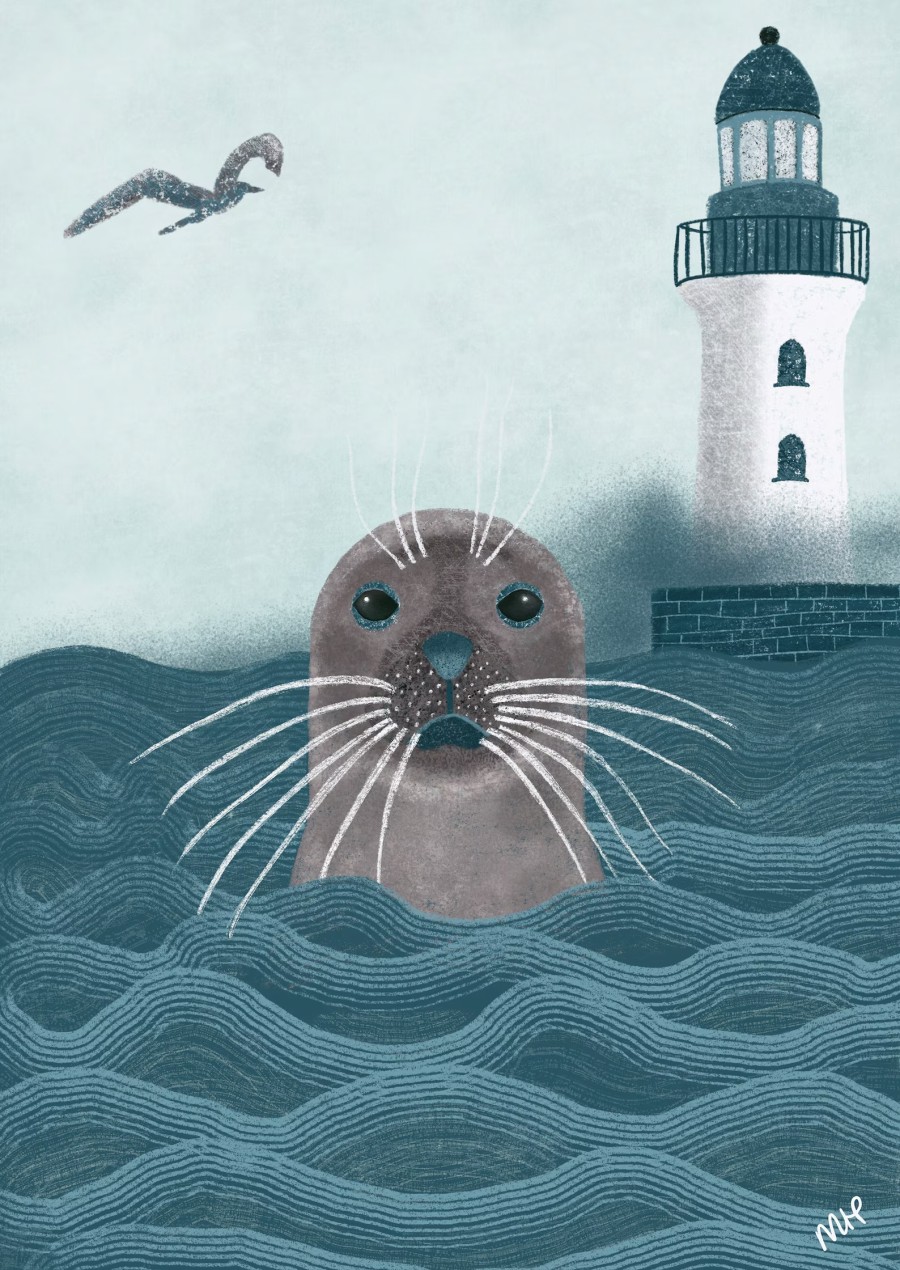Why Sharks Matter (even if you’re scared of them)

All sharks around the world are endangered (our own harmless basking sharks are actually large fish and also endangered). Even the ones that seem scary have important roles to play in wild ecosystems, and it’s not ethical to shove them in cages, for TV reality series.
The nine species of hammerhead shark have binocular vision, and can use their heads to ram their prey. They can swim sideways, and females can fertilise their own eggs, without a male shark!
The Shark Trust sells organic cotton clothing in zero waste packaging, with profits helping their work to protect sharks and and rays worldwide.
What About Terrifying Great White Sharks?

They may look terrifying with their huge sets of teeth, but actually toasters kill more people each year. Most shark attacks are when they mistake glistening surfboards for fish, and end up taking a bite of a human (who can bleed to death), but usually never eats a person, as we are not their natural diet.
Many sharks are used to make shark fin soup (no taste, it’s just used for food decoration). The fins are cut off, and then the sharks are thrown back to sea, to die. Shark fins are illegal to import into the UK.
Some chip shops are now selling shark (labelling it dogfish), as cod is now so endangered, there are not enough stocks.
Also never buy shark teeth when abroad, as souvenirs.
Visit Bite-Back for ways to help all sharks across the world. This includes (if you eat fish) knowing which brands of tuna to avoid (some also are harming sharks and other marine creatures). You can also contact the charity to alert them of anyone selling shark.

The number of sharks being slaughtered every day – primarily for shark fin soup – is shocking, and it’s got to stop. It’s time the public learned to regard sharks as the lions and leopards of the oceans, and get right behind shark conservation campaigns, before it’s too late. Steve Backshall (Bite-Back patron)
Tips for Sustainable Sailors
If you sail a boat, read our post for wildlife-friendly sailors).
If you do spot a shark (or any marine wildlife), keep at least 100 feet away – advice for North Atlantic and killer whales, is to stay even further away. If the shark should approach your boat, switch your engine to neutral and slow your speed to 4 knots
Never use jet skis, and if you dive or snorkel, enter the water gently to avoid splashing. Never use flash photography.
Avoid Beauty Brands Using Shark Ingredients
Although some companies make plant-based versions, most squalene or squalane oil in cosmetics is from sharks. Commonly found in wrinkle creams, deodorants, lip balms, sunscreens and lipsticks, check for vegan logos before purchase.
It takes 3000 sharks to make just one ton of squalene, meaning almost 3 million sharks are killed each year. Just to take oil from their livers, to use in the beauty and pharmaceutical industries.
The reason shark liver oil is used is because their swim bladders keep them buoyant in the ocean (so it’s believed the same can be done for skin). But you can get the same effects from plant-based squalene from olives, sugarcane, rice brand, wheat germ or amaranth seed.
Ambergris is a product from sperm whales, often used in perfumes. Choose vegan sustainable perfumes instead.
A Fun Book to Learn About Sharks

Interview with a Shark is a fun illustrated book, offering interviews with sharks and other ocean giants. Each creature steps up to the mic, and shares their habits, behaviour, likes and dislikes. And favourite foods!






